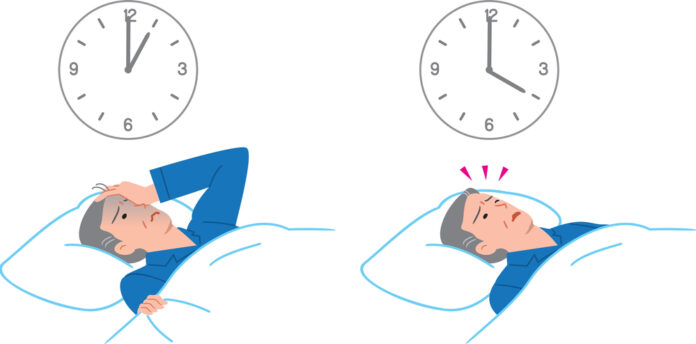Sleep, like water and food, is an important part of our daily lives. Sleep is indeed the golden thread that connects our functioning and our bodies. Even though we may believe that sleep rests our exhausted bodies, our central nervous system is active all night. Sleep is essential for both brain and physical health.
According to studies, there is a decline in the level of sleep starting in middle age, with certain reports claiming that these deeper phases of sleep are absent after the age of 90. This leads to increased stress and anxiety in elders.
Assessments of sleep disturbance in the elderly have revealed that they are extremely tired than younger individuals, implying that the seniors are unable to get enough sleep well at night.
The elderly spends more time in bed than younger adults, but it does have hurt negative impact on both the quality and quantity of sleep.
If the senior is having difficulty sleeping, you should see a doctor. Athulya Home Healthcare has the best treatment specialists that provide geriatric medical counselling in Chennai via medical visits at residence or video consultation, thereby improving our loved ones’ sleep quality.
Any disruption in the sleep patterns in seniors can be termed as a sleep disorder. These include difficulties falling or staying asleep, sleeping excessively, or engaging in abnormal sleep behaviours. The following are the main sleep disorders amongst the elderly:
- Insomnia is amongst the most commonly diagnosed complaints, particularly among the elderly. According to studies, insomnia may be linked to stress, prescription drugs, poor sleep habits, or shifts in sleeping patterns.
- Hypersomnia – sleep disorders in the geriatric population include not just a lack of sleep but also too much sleep. Excessive daytime sleepiness affects approximately 20% of the elderly, and that might be a symptom of an underlying medical problem rather than simply old age, such as sleep apnea, intellectual disability, or cardiovascular problems.
- Narcolepsy is a chronic sleep condition that causes excessive drowsiness during the day. People with narcolepsy frequently struggle to stay awake for long durations, regardless of the situation. Narcolepsy can seriously affect your day-to-day activities.
- Obstructive sleep apnea refers to the periods of stress in breathing that occur during sleep when the upper windpipe becomes blocked over and over again. It is predicted that 20 to 60% of the population over the age of 65 are affected.
- Restless leg syndrome (RLS) is the immense desire to move your legs while sleeping. It can occur at any age, but it is more intense in middle-aged and older adults who undergo it more recurrently and for longer durations.
- REM behaviour disorder (RBD), or the acting outside from dreams while sleeping. This is also known as dream enacting behaviour. According to one study, up to 7.7 fractions of adults over 60 years old who did not have Parkinson’s disease had RBD.
Sleep deprivation in seniors is primarily caused by aging. A better and healthier senior may wake several times a night for no apparent reason.
Sleep problems in older adults can be caused by a variety of factors, including chronic diseases such as heart failure, prescription drugs, Alzheimer’s, shifts in the body’s natural body clock, psychological health, excessive urination at night, and so on.
Tips to improve sleep in elders
Seniors don’t have to become tired all of the time because they are getting older. We can do a variety of things to assist our loved ones in getting a good night’s sleep. Here are a few recommendations:
- Maintaining a sleep pattern
- Avoid taking naps in the evening hours.
- Creating a bedtime habit
- Maintain a constant temperature in your bedroom.
- In the nights and as you begin preparing for bed, use soft lighting.
- Workout at regular intervals throughout the day, and not within three hours of going to bed.
- Huge meals should be avoided right before bedtime.
- Avoid caffeine late in the day.
- Restraint from alcohol.
There are various methods for boosting great sleep, such as dietary changes, as some nourishments have sleep-promoting properties. Here are the most widely used and effective foods to boost sleep quality.
- Bananas are highly nutritious, which helps to induce relaxation.
- Almonds
- Warm milk and Honey
- Chocolate
- Sweet potatoes, which are high in nutrients and complex proteins, help to relax muscle tissue and improve sleep.
If you’ve been feeling tired unable to do your tasks for more than weeks and think you’re having sleep problems, you need to see a doctor. Athulya Home Healthcare offers great geriatric health care counselling services in Chennai for seniors in sessions with sleep professionals to help elders with depression, poor sleep, stress, and anxiety.













